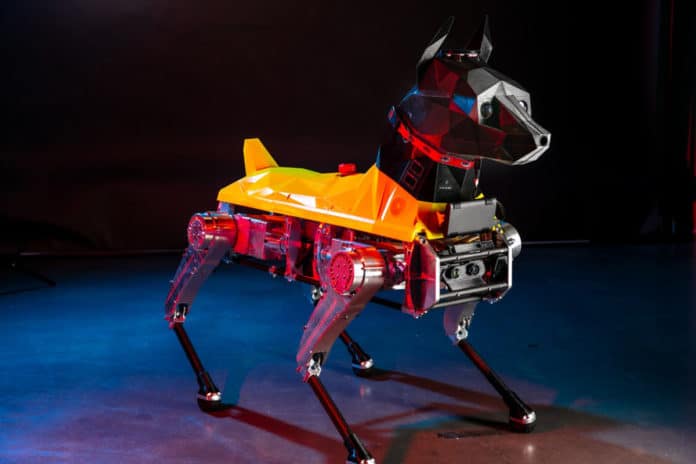Researchers at Florida Atlantic University have developed a four-legged seeing and hearing intelligent robodog named “Astro.”
We already have seen several dog-like quadruped droids, such as MIT’s Mini Cheetah and Boston Dynamics’ SpotMini, that move by walking with their four backward-bending legs. But Astro is a bit unique as it is the only one of these robots with a 3D-printed, Doberman pinscher-inspired head that contains a computerized brain.
The artificially intelligent Astro robot does not only look like a dog; it learns to like the one too. Instead of pre-programmed robotic automation, Astro is being trained using inputs to a deep neural network. This makes the robot learn from experience to perform human-like tasks, or on its case, “doggie-like” tasks, that benefits humanity.
Just like other robo-dogs on the market or in development, it is also capable of withstanding attempts to knocking it over, as well as it is well-suited to traversing rough terrain. It might encounter in search-and-rescue operations, or when surveying disaster sites.
This 45 kg (100-pound) robodog is equipped with sensors, high-tech radar imaging, cameras, and a directional microphone, they all allow it to interpret voice commands and make sense of its surroundings. A set of Nvidia Jetson TX2 graphics processing units are on-board with a combined four teraflops of computing power, which amounts to about four trillion computations a second.
Astro is still a “puppy-in-training.” So far, it is able to respond to basic commands like “sit,” “stand,” and “lie down.” But when completely developed and outfitted with more than a dozen sensors, Astro will be able to understand and respond to hand signals, detect different colors, comprehend many languages, coordinate his efforts with drones, distinguish human faces, and even recognize other dogs.
The team also says that it could find use in applications such as the detection of guns and explosives, guiding the blind, exploring hazardous environments, or assisting soldiers on the battlefield.
Besides the Astro will be able to search through thousands of faces in a database, sniff out and identify airborne substances, hear distress calls that are inaudible to humans, along with various other robo-dog superpowers, according to the research team.
